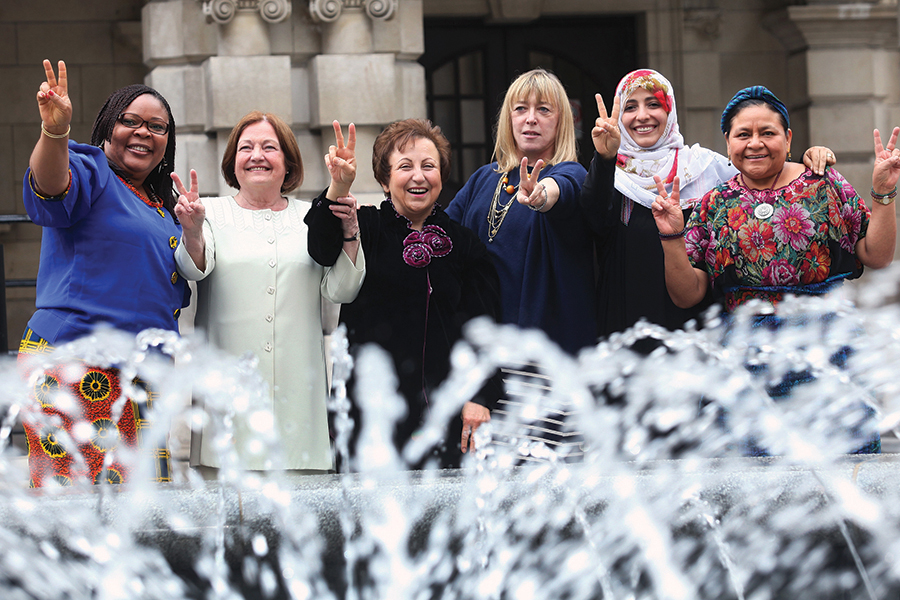Jody Williams, the 1997 Nobel Peace Prize recipient, led a movement that successfully banned the use, production, and sale of anti-personnel landmines. She writes that feel-good, sentimental feelings around peace are a waste of time.
The image of peace with a dove flying over a rainbow and people holding hands singing kumbaya ends up infantilizing people who believe that sustainable peace is possible. If you think that singing and looking at a rainbow will suddenly make peace appear, then you’re not capable of meaningful thought or understanding the difficulties of the world. Most people, when confronted with these images of peace, and the derogatory terms that go with it, such as “tree-hugger,” “liberal” or “granola-eating hippie,” become ashamed to say they believe in peace.
It’s critical that humanity reclaims the meaning of peace. Peace is not just an absence of conflict or personal serenity. Peace means actively engaging in the world to create one in which we all want to live. It’s hard work — every day. It’s about making a commitment to a greater good, even with the people you don’t like in the world. I certainly don’t like everyone in the world; the Nobel Peace Prize did not suddenly turn me into Mother Teresa. There are those whose politics and worldview I don’t like at all. However, if I only wish for a greater good for my friends or those who think like me, I’m no different from the people I dislike.
I want to see a world in which everybody benefits from sustainable peace. To achieve this, we need to focus on human security, not national security. Theoretically, within a national security framework, if the state is secure, then the people are secure — but I don’t believe that. I look at my own country, the United States, where democracy is under siege. A huge number of people live on, or below, the poverty line, and the things I consider important to making a nation secure, such as job security, are collapsing under the weight of global corporatism. A lust for more and the selling of weapons of war do not make us secure.
I don’t believe you need to be a full-time activist to be an involved citizen and to bring about positive change. The media wants us to believe that the problems of the world are so overwhelming that there’s nothing we can do — to leave it to people in power to solve, the so-called “experts.”
When I speak with people of any age, I suggest they think for a few moments about what issue upsets them the most and what change they’d like to see. When I started the International Campaign to Ban Landmines in 1991, it wasn’t about changing our world from a planet of war into one of peace overnight. It was about banning one weapon, which started a process of change. The campaign grew within six years to 1,000 organizations in 60 countries. It resulted in the signing of The Ottawa Convention by 120 states, banning the use, production, and sale of anti-personnel mines. There’s nothing magical about bringing about change — it’s about converting your concern into action. If you teach people different ways of looking at this little planet we all share, you can change the world. Anything is possible if you believe it. You’ve just got to get up off your butt and participate in creating change.




































